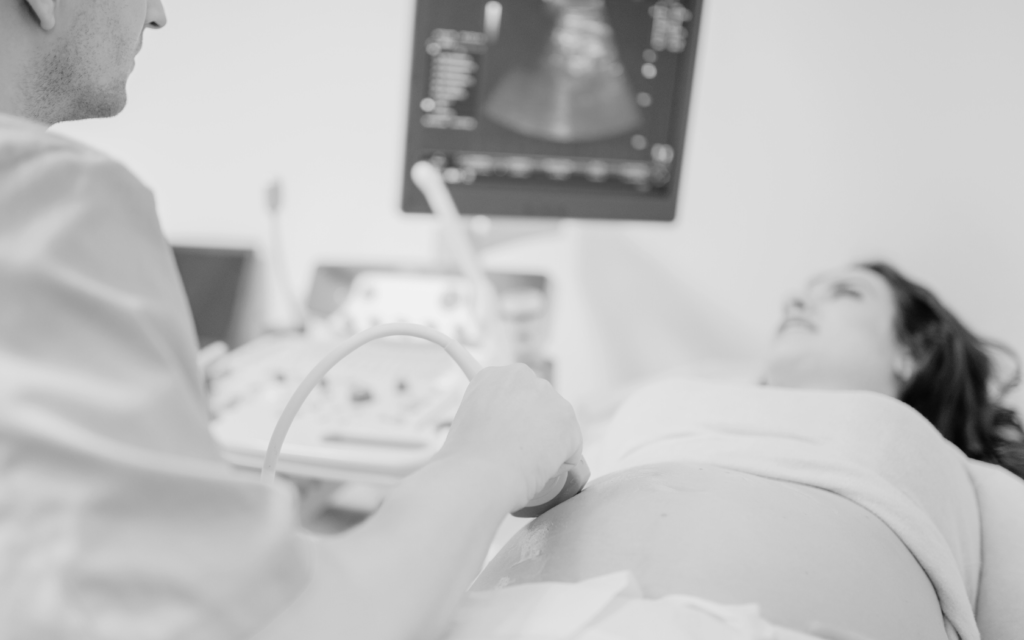When your child has a lifelong condition like cerebral palsy, you want to know as soon as possible. So you might wonder, “Can cerebral palsy be detected before birth?”
The answer is complicated. The American Pregnancy Association says about 70% of cerebral palsy cases develop from events that happen before birth. But there’s no pre-birth test for cerebral palsy. It’s hard to diagnose it until after birth.
Also, while early detection could provide time to plan for interventions, it doesn’t always mean the condition can be prevented.
Still, understanding the risks and early warning signs during pregnancy can help ensure the best possible care for your baby. Below, our cerebral palsy lawyers share what those warning signs are.
Can Cerebral Palsy Be Detected Before Birth?
In most cases, no. There are some risk factors of cerebral palsy (CP) that can be detected in pregnancy, but CP usually develops because of brain damage that occurs before, during, or right after birth.
There could be some indication of CP before birth. A baby could have a genetic issue or developmental problem that could clue doctors into the child potentially having CP.
But some injuries that cause CP happen during labor. They include:
- Lack of oxygen to the baby’s brain (asphyxia)
- Infections during delivery
- Complications like getting stuck in the birth canal
How Can Doctors Identify CP in Pregnancy?
Doctors can’t usually diagnose CP in pregnancy. Usually, kids are diagnosed with CP when they’re 2 or 3 years old. This is when delays in motor development become evident.
But doctors can identify potential risks or early signs of CP in pregnancy, through various methods, including:
- Ultrasounds to reveal brain abnormalities.
- Magnetic Resonance Imaging (MRI): When doctors suspect there’s brain damage, they can get a detailed view of the baby’s brain with an MRI.
- Amniocentesis or Chorionic Villus Sampling (CVS): The doctor takes a sample of amniotic fluid or placental tissue. The sample could reveal infections or genetic disorders that might contribute to CP.
- Doppler ultrasound: This type of ultrasound assesses blood flow in the umbilical cord, placenta, and baby’s brain.
- Fetal movement monitoring: If a baby moves less than normal, that could be a sign of developmental problems.

Risk Factors and Signs of CP in Pregnancy
Although in most cases cerebral palsy cannot be detected before birth, some risk factors of CP can be detected in pregnancy.
Doctors have the obligation to identify these risks and intervene if needed.
Risk factors during pregnancy include:
- Infections in the mother. Illnesses like rubella (German measles), cytomegalovirus, or toxoplasmosis can lead to brain damage in the developing fetus.
- Premature birth. Babies born before 37 weeks are at higher risk for CP. Their brains are still developing and are vulnerable to injury.
- Multiple babies. Carrying twins, triplets, or more increases the risk of premature birth, which can contribute to CP.
- Low birth weight. Babies weighing less than 5.5 pounds are more likely to have brain injuries that can lead to CP.
- Toxin exposure. Environmental toxins, drugs, alcohol, and certain medications can damage a baby’s brain.
- Maternal health conditions. Diabetes, high blood pressure, and thyroid issues can increase risks of complications during pregnancy or delivery.
- Different blood types. If the mother’s blood type is different from the baby’s, the mother’s body can make antibodies that attack the baby’s organs. This can lead to brain damage that causes CP.

Cerebral Palsy and Negligence
At the moment, there’s no cure for cerebral palsy. Additionally, it is usually undetectable before birth. There are very few cases where it can be prevented.
However, doctors do have the obligation to detect risk factors related to CP in pregnancy. For example, they can spot and treat infections.
What happens when doctors don’t detect or treat risk factors for CP, and a baby ends up with this condition? The doctor could be liable for negligence.
Here are some ways that a child could develop CP because of a doctor’s negligence:
- Failing to treat infections
- Not monitoring a baby’s heart rate, or failing to respond to signs of fetal distress
- Failing to test the mother for certain conditions
- Misusing forceps or vacuum extractors during delivery
- Failing to monitor oxygen levels during labor and delivery
If a doctor’s negligence caused your child’s CP, you may have grounds for a medical malpractice claim. You might be entitled to compensation that covers your child’s care and future needs.
To find out more about birth injury lawsuits, click here. Or, contact us to discuss your case.




